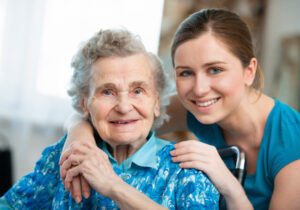Insights from Dr. Jacqueline DuPont Carlson - Gerontologist
As we age, effective communication becomes increasingly critical, especially for those providing care to elderly clients. From a gerontologist’s perspective, understanding and implementing compassionate communication strategies can significantly enhance the quality of life for older adults. In this article and video above, Dr. Jacqueline DuPont Carlson explores the essential tips for communicating with elderly clients, emphasizing the importance of compassion, consistency, and personalization.
1. The Power of Compassionate Communication
Compassion is the cornerstone of effective communication with elderly clients. Many older adults may experience difficulties in understanding or remembering information due to cognitive decline or conditions like dementia. To foster a supportive environment, caregivers should maintain good eye contact and speak calmly. It’s essential to eliminate background noise and create a quiet, space for conversation.
Writing down important information can also be beneficial. For instance, if you need to communicate an appointment time, jotting it down and showing it to the client can help them process and remember the information more easily. This approach acknowledges that different individuals have unique learning styles and needs.
2. Emphasizing Structure and Consistency
Consistency is crucial in caregiving. Older adults thrive in environments where they can anticipate daily routines and schedules. This consistency helps reinforce their sense of security and stability. For example, ensuring that a favorite TV show airs at the same time each day or maintaining regular mealtimes can provide a comforting routine for elderly clients.
When introducing new caregivers, it’s vital to maintain as much consistency as possible. Frequent changes in caregivers can lead to confusion and anxiety. A stable, familiar caregiving routine helps clients feel more at ease and supported.
3. Therapeutic Fibbing: A Dignified Approach
Therapeutic fibbing involves gently redirecting conversations to avoid distressing or confusing the client. For example, if an elderly client struggles to remember the current day or date, caregivers can provide the information without emphasizing the memory lapse. Instead of asking, “Do you remember my name?” a caregiver might say, “Hi, it’s Linda. I’m here to help you today.”
This technique respects the client’s dignity and reduces feelings of frustration or sadness associated with memory loss. It’s about creating a positive interaction that acknowledges their current capabilities without highlighting their limitations.
4. Personalization: Knowing Your Client
Understanding an elderly client’s personal history, preferences, and interests is fundamental to effective communication. Caregivers should take the time to learn about their clients’ favorite activities, TV shows, and hobbies. This knowledge allows caregivers to engage in meaningful conversations and activities that resonate with the client.
For example, if a client is a lifelong fan of a particular sports team, caregivers can use this interest as a conversational entry point or a way to redirect attention during moments of confusion. Personalization fosters a deeper connection and shows clients that they are valued as individuals.
5. Avoiding Argumentation
Arguing with elderly clients, especially those with cognitive impairments, is counterproductive. Instead, caregivers should practice compassionate redirection. This means acknowledging the client’s feelings and gently guiding the conversation towards a more positive or neutral topic. By avoiding debates and validating the client’s perspective, caregivers can maintain a calm and supportive environment.
Effective communication with elderly clients requires a blend of compassion, consistency, and personalization. By implementing these recommendations, caregivers can enhance their interactions with older adults, promoting a sense of dignity, security, and well-being. Remember, the goal is to create a supportive environment where elderly clients feel understood, respected, and valued.
If you’re seeking more personalized advice or support in your caregiving journey, speak to a Care Advisor today! We are standing by to talk with you about your caregiving goals. Call and chat with us today at (800) 925-7159 or click here to fill out our contact form.




